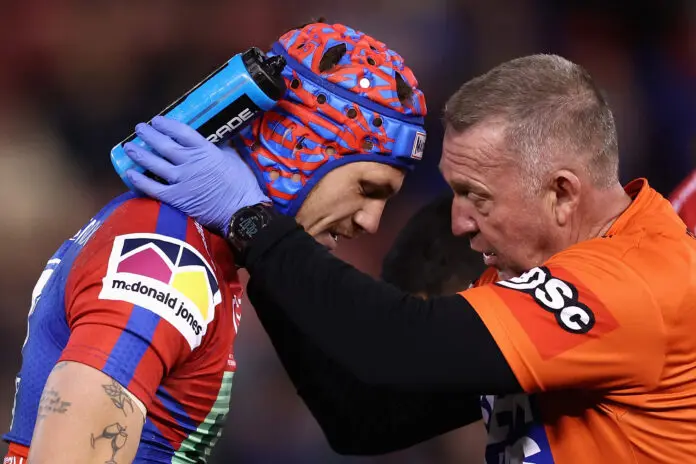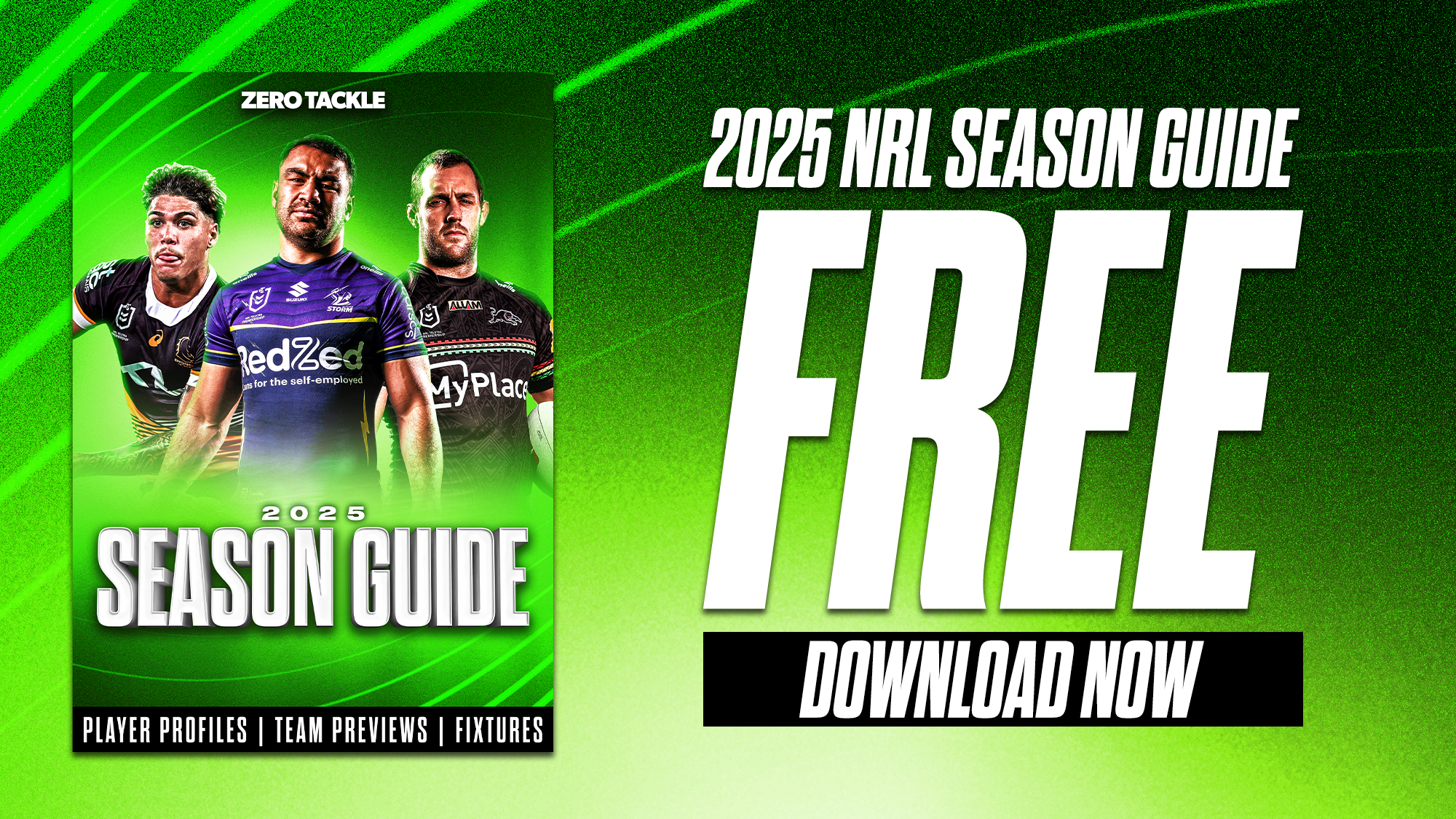The NRL is introducing mandatory stand-downs for anyone that suffers a concussion from this round onwards in a bid to improve players' long-term health and safety.
Kalyn Ponga is serving as the concussion poster boy at the present, after suffering his fourth in the space of ten months last week, pouring fuel onto the fire of concussion debates after a number of players retired in recent years due to head knocks.
The Sydney Roosters had both their co-captains in Jake Friend and Boyd Cordner hang up the boots just months apart due to repeated concussions, while their team-mate Luke Keary has suffered more than his fair share, including one in the pre-season.
The ARL Commission came to the monumental decision on Tuesday night, and rang all 17 NRL clubs on Wednesday morning to update them on the new protocols and stand-down periods following a head knock, which include:
- players who suffer a diagnosed concussion will be automatically stood down a minimum of 11 days.
- category one symptoms include loss of consciousness, failing to protect oneself when falling and unsteadiness. Any player exhibiting these symptoms are automatically removed from the game.
- category two means a player has failed their HIA (head injury assessment) in the dressing room and is unable to return to the field.
The new rules are now in effect, meaning any head knock suffered in Thursday's grudge match between Manly and Parramatta will have the new protocols applied.
The 11-day stand-down means any player that suffers a diagnosed concussion in a preliminary final will automatically be ruled out of the grand final, regardless of whether the player is no longer exhibiting symptoms.
Peter V'landys confirmed the changes would take place immediately.
“There is no greater priority for us than player safety. It's front and centre of everything we do," the ARLC chairman said in a statement.
“Our current head injury protocols are exceptionally strong. Following a review of the data and the expert advice we have received, the Commission have enhanced these protocols even further by providing a mandatory 11 day stand down period following a diagnosed concussion.”

Clubs can have players exempt from the 11 day stand-down periods, however they'll have to meet a specific criteria to do so.
- category one symptoms are not observed
- player is asymptomatic the day following the concussion
- cognitive testing has returned to normal
- player has suffered fewer than five previous career concussions
- player has no previously diagnosed concussions within the previous three months
- player has no history of a previous concussion with prolonged recovery
Ponga's knock 80 seconds into their clash against the Wests Tigers was deemed a category one, meaning the five-eighth would have been ruled out of this week's clash against the Dolphins regardless of his history or symptoms.
While diagnosed head knocks can earn exemptions, Ponga has had in excess of five career concussions, and was also deemed a category one.
Category two concussions, like the one Jayden Brailey suffered in the same match, require players to leave the field and undergo a HIA, and can only return to play if they pass that test. If they fail and are diagnosed with a concussion, they'll have to pass the above criteria to play within 11 days.

100% Footy's Michael Chammas believes Ponga will sit out at least four weeks as he battles yet another concussion.
The head knock compounds the NRL's opening round, where the usage of independent doctors came under fire by a large portion of head coaches after their stars were pulled from the field despite not showing any symptoms.
The AFL endured a class action lawsuit from 60 former players recently at the Supreme Court of Victoria, arguing they weren't looked after as they should have been throughout their respective careers.
While the NRL has a ways to go, they're certainly on the right path.
























As reported, this action raises as many problems as it addresses.
– For how many days is the player stood down? Eleven, 21, 31, rest of the season?
– Who decides ? Independent doctor? Club doctor? Coach? NRL?, The player?
– Does this apply to just First Grade? Or the Q-Cup/NSW Cup, or Jersey-Flegg, or Under16s ? etc
– Is the first grade squad to be raised from 30 to, say, 33 or 36 to cover compulsory stand-downs, (or can clubs just import Q-Cup/NSW Cup players) ?
How can clubs have a serious conversation with their players who suffer repeated head knocks, if the NRL will not allow them salary cap exemption to hire replacements – right now – rather than having to wait until next season?
There are other aspects, but you get the idea, I think.